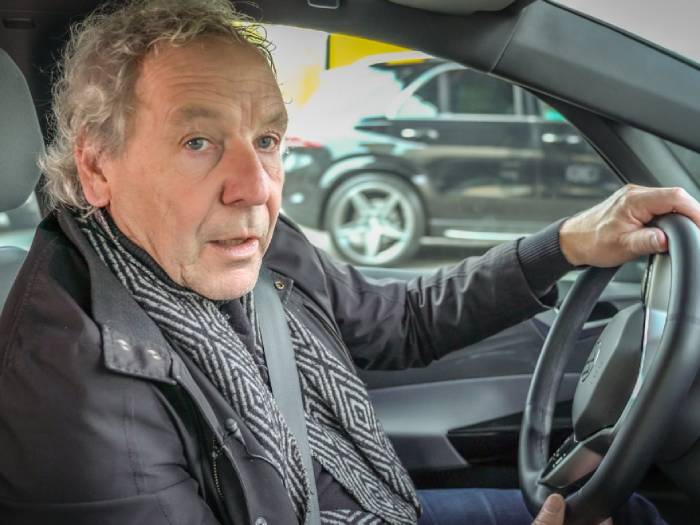Shared and digital, the urban mobility of tomorrow
According to German transport expert Andreas Knie, lack of space is the main problem in urban areas and will be solved by self-driving vehicles, which will become a widespread mode of transport.

Professor Andreas Knie is an internationally renowned transport expert. Associate professor of Sociology at the Technical University of Berlin, he was Director of the the centre of innovation for mobility and social change and has been a researcher at the Berlin Social Science Center (WZB) since 1988, where he set up the Mobility project group.
He is currently one of the leaders of the Digital Mobility and Social Change research group. In his vision of the mobility of the future, parked cars represent a massive waste of space, which will be eliminated.
Space saving through autonomous driving
According to Knie, the problem of lack of space will become increasingly important as cities adapt to the consequences of climate change. “The mobility of the future will be very different: autonomous driving will cause parked cars to disappear from our cities. Vehicles will only stop to let people get in or out, having hailed them on their smartphones before leaving the house. These robot shuttles will take us wherever we want to go, by ourselves or with other people, 24 hours a day. So there will be no need to leave cars parked, freeing up precious space for other modes of transport too”.
Car ownership and use
According to Knie, car ownership in urban areas could become an outdated concept: “We need to realise that we are emerging from an era in which cars have been tremendously dominant; if we consider a city like Berlin, cars are currently responsible for more than 40% of traffic and occupy 80% of the space; the rest is divided between buses, trains, bicycles and pedestrians. We need a more balanced distribution between the different modes of transport and we need to stop concreting so much”. If he needs a car, the sociologist uses car sharing.
Sharing economy

And the fact that the Volkswagen Group offers car sharing such as at WeShare or ride pooling like at MOIA is a sign of great foresight, according to the expert: “They recognised that 48 million cars in Germany is too many; then, thinking outside the box, they asked themselves what people really need. However, I don't anticipate that mobility services will become the core business of big car manufacturers, who will continue to focus on vehicle production” says Knie.
In his vision, self-driving cars will become a means of public transport in cities, and the main customers will be the municipalities and local transport associations, who will buy the vehicles for their activities. And car manufacturers should join forces with these partners, so that autonomous shuttles can complement buses and trains.
One app
Another trend to consider is digitalisation, which will play an increasingly important role. Ideally, all modes of transport should be brought together in a single app, so that you can choose your favourite provider and book everything - from the bus to the bike and to the car.
“Public transport companies need to be more flexible. We all adjusted our lifestyle during the pandemic and now many people only travel to the office two or three times a week. Work time and space have changed but, for example, rail prices are just as rigid as they were before Coronavirus. That needs to change”, says Knie, who goes on to illustrate the usefulness of digital pay-as-you-go models that allow you not to buy a monthly pass in advance, as is the case with WeShare, which only bills for actual usage, always guaranteeing the best price.
Source: Volkswagen AG
VGI | Responsible OU: VP | Creation date: article date | Class 9.1
